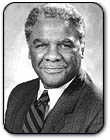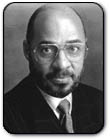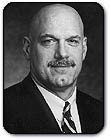IMPACT
press
April/May
1999 Articles:
The Chaining of America
Politics Is Being Reinvented
E-Mail Us
Your Comments
|
The New Leadership is
More Than New Faces------by Terry Nichols Clark
Politics is Being Reinvented
Around the world, a new type of political leadership is emerging. Joining elements of the traditional left and right, this new leadership builds on new concerns -- like making government more efficient and helping average citizens participate in policy making. Liberal on social issues, but fiscally conservative, practitioners of this new paradigm include national leaders -- President Bill Clinton in America, Prime Minister Tony Blair in Great Britain and Chancellor Gerhard Schroeder in Germany -- while their counterparts have assumed power in state capitols and city halls.
The breadth and depth of this change in leadership is part of a shift in politics throughout the world. I call this sea of change the "New Political Culture," which is also the title of a new book by myself and Vincent Hoffmann-Martinot, a French political scientist. Studying citizen surveys, party programs, and 7,000 cities in 20 countries, we found that government is being changed by a new form of politics guided more by issues than by traditional distinctions between liberal and conservative positions. Thus we see President Clinton infuriating Labor and African-American leaders -- two traditional Democratic core constituencies -- by supporting the North American Free Trade Agreement and welfare reform without any apparent broader political repercussions.
At the local level, we see the New Political Culture coming to the forefront in -- of all places -- Chicago. The Hog Butcher of the World, my home for the past 30 years, has long been known for its raucous, often corrupt, politics. When we first began discerning this new type of political leadership, Chicago hardly seemed a likely candidate. Upscale college towns in scenic areas, like Boulder, Colorado seemed more likely locales. But during the 1980s and 1990s, Chicago changed more than it did during the first 80 years of the twentieth century. The 1980s saw the election of Chicago's first African-American mayor, who initially frightened many whites. But Mayor Harold Washington, while maintaining his strong neighborhood base, largely pacified business interests, which invested billions of dollars into downtown development during his tenure. This balancing act was an early example of the New Political Culture in action.

Harold Washington |
Our current mayor, Richard M. Daley, has taken the process several steps further, in many ways resembling predecessors Washington and Jane Byrne more than his father, Richard J. Daley, who ruled the city for decades. From Byrne comes the emphasis on bread & circuses, with the shores of Lake Michigan hosting seemingly constant festivals, special events and fireworks. From Washington comes the emphasis on affirmative action and neighborhood development. Landscaping blooms along formerly blighted commercial streets; decorative wrought iron fencing springs up everywhere. These changes are more than cosmetic; they are the building blocks for a new Chicago, one whose main industry is entertainment -- including restaurants, conventions, hotels and shopping. We haven't butchered a hog in years. The city's number one business is entertainment. |
The modern Mayor Daley embodies the New Political Culture by supporting social tolerance and inclusion. Chicagoans could never imagine Richard I marching in a gay pride parade, or choosing a black woman to head up his re-election campaign. His son Richard II has done both.

Dennis Archer |
We see similar movement in cities elsewhere. In Detroit, Mayor Dennis Archer has abandoned the bombast and classic union liberalism of his predecessor, Coleman Young, instead emphasizing economic development and regional cooperation as policies that may bring hope to his predominantly African-American constituency. Cleveland has a broadly similar mayor. |
At the state level, we see the New Political Culture in the successful campaigns of governors such as Gray Davis in California, Jeb Bush in Florida and his brother, George M. Bush of Texas, whose "compassionate conservatism" has made him an early favorite for the Republican presidential nomination next year. All three emphasize public education improvements as vital -- both for economic development reasons and to improve conditions for their large Hispanic populations.
In the country's largest state, Gray Davis has evolved from chief of staff to former "Governor Moonbeam" Jerry Brown to a fiscal hawk who, as state comptroller for eight years, cracked down on governmental inefficiency and fraud in the state's Medi-Cal program. At one point, to force the state legislature to pass an overdue budget, he withheld paychecks from all elected state officials, including himself.
The backgrounds of these three governors -- two Republicans and a Democrat -- further demonstrate how personal appeal and positions on issues now transcend heritage and deep family roots. Two of them -- Jeb Bush and Davis -- aren't even natives of the states they now govern; Davis was born in the Bronx, and Bush moved to Florida less than 20 years ago. The Texas Gov. Bush grew up there, but went East for prep school and has degrees from both Harvard and Yale. Hardly a cowboy, although he can "talk Texas."

Jesse Ventura | Jesse Ventura, the new Governor elected in Minnesota, is even less traditional: coming from the wrestling ring and a third party, he was scorned, initially, by party, business, and civic leaders. He spoke to these new political concerns more forcefully than the established candidates, however, and won the day. |
In Arizona, the top five officials elected in November 1998 were all women. They replaced traditional leaders tarnished with scandals. Women nationally, and internationally, are disproportionate supporters of the New Political Culture, which stresses more consumption and lifestyle than jobs and money. Abortion, education, and an attractive environment are quite distinct issues from the older cries of jobs, profits, tariffs, and war. These new issues have replaced the old in most of the world, and women are coming to office in record numbers.
Partially because they transcend party lines, practitioners of the New Political Culture are not easy to categorize. They disagree as much with the views of Ronald Reagan and Margaret Thatcher as they do with Karl Marx and Franklin D. Roosevelt. The term "New Democrats" is often used, but what about Republicans like the Bush brothers? Another well-worn label, "centrist," falls short as well, since it implies unwillingness to make strong moves in any direction. Certainly, Clinton policy initiatives like NAFTA, welfare reform and health care were strong moves, although they appeared sometimes inconsistent in direction. The new leaders take many cues from citizen polls, and shift policy as citizen concerns unfold.
These "exceptions," cumulatively, add up to new rules of the game. Just because the trend is not yet summarized on a bumper sticker doesn't mean it's not there. As traditional parties continue to splinter, as former urban Democrats move to the suburbs, this new way of looking at public policy, this New Political Culture, will continue to take shape and redefine how we live in the New Millennium.
Terry Nichols Clark, Pd.D., is professor of sociology at The University of Chicago. He is the founder and coordinator of the Fiscal Austerity and Urban Innovation Project, which includes 7,000 cities in 35 countries. His lastest book was The New Political Culture, Westview 1998.
|